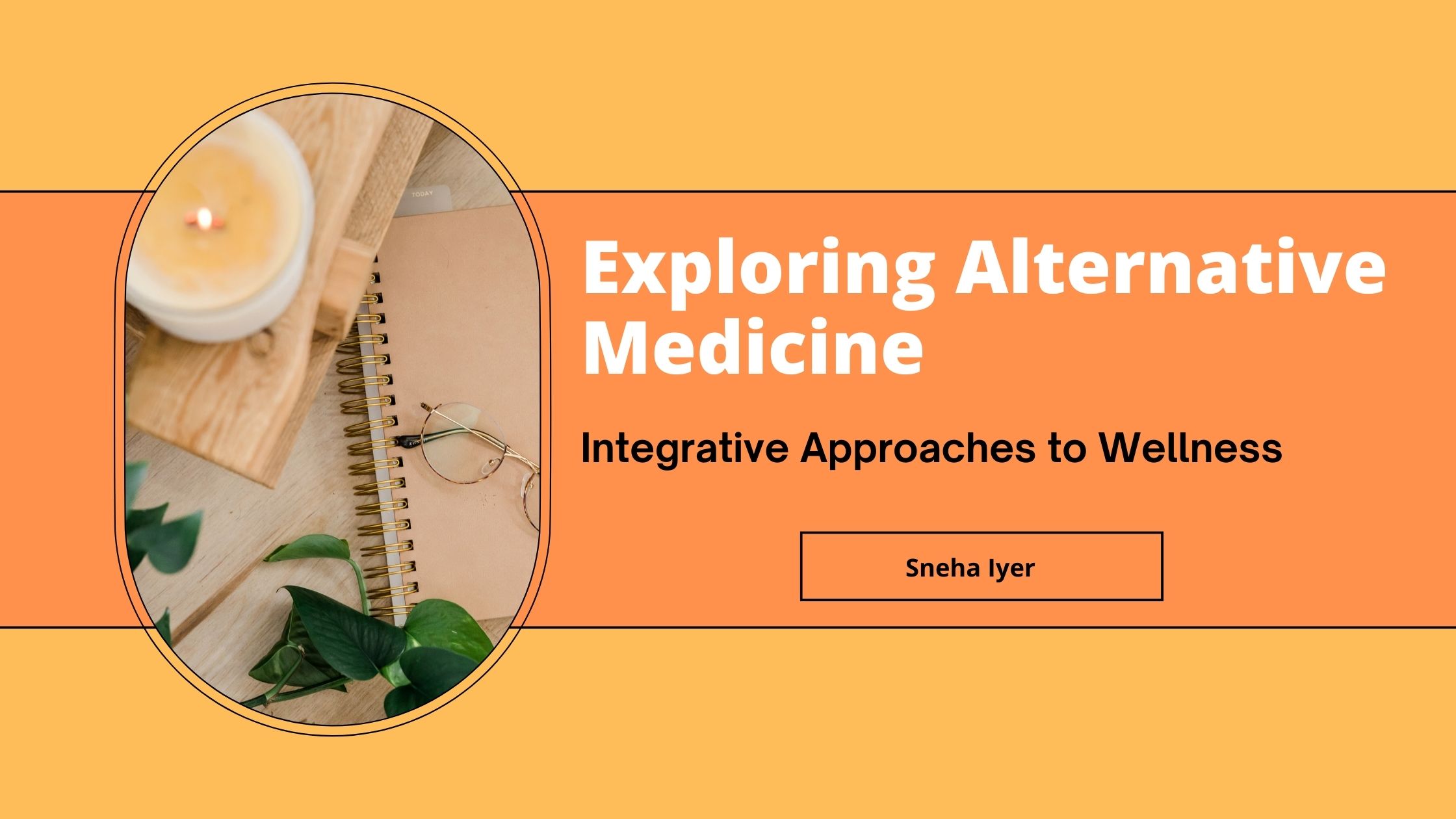In recent years, there has been a growing interest in alternative medicine, also known as complementary or integrative medicine, as people seek holistic approaches to health and wellness. Alternative medicine encompasses diverse practices and therapies that fall outside conventional Western medicine. From acupuncture and herbal remedies to yoga and meditation, these integrative approaches aim to promote healing and well-being by addressing the mind, body, and spirit. In this blog post, we’ll explore the principles of alternative medicine and the potential benefits of integrating these practices into mainstream healthcare.
Holistic Approach to Healing:
One of the core principles of alternative medicine is its holistic approach to healing, which recognizes the interconnectedness of the mind, body, and spirit in health and disease. Unlike conventional medicine, which often focuses on treating symptoms or isolated body systems, alternative medicine emphasizes treating the whole person and addressing underlying imbalances or root causes of illness. Using a holistic approach, alternative medicine seeks to restore balance and promote optimal health and wellness.
Diverse Range of Therapies:
Alternative medicine encompasses a wide variety of therapies and modalities, ranging from ancient healing practices to modern integrative therapies. Some common examples of alternative medicine include acupuncture, chiropractic care, naturopathy, herbal medicine, Ayurveda, traditional Chinese medicine, homeopathy, yoga, meditation, massage therapy, and energy healing techniques such as Reiki. Each of these therapies offers unique approaches to promoting health and well-being, addressing different aspects of the individual’s physical, emotional, and spiritual health.
Focus on Prevention and Wellness:
Alternative medicine places a strong emphasis on preventive healthcare and wellness promotion, encouraging individuals to take an active role in maintaining their health and preventing disease. Many alternative therapies focus on lifestyle modifications, such as dietary changes, exercise, stress management, and mindfulness practices, to support overall health and well-being. By empowering individuals to adopt healthy lifestyle habits and self-care practices, alternative medicine promotes resilience and vitality while reducing the risk of chronic disease.
Individualized Treatment Plans:
Alternative medicine practitioners take a personalized approach to healthcare, tailoring treatment plans to each individual’s unique needs, preferences, and health goals. Unlike one-size-fits-all approaches, alternative medicine recognizes that what works for one person may not work for another, and therefore emphasizes the importance of individualized care. By considering the whole person, including their physical, emotional, and spiritual dimensions, alternative medicine practitioners can develop comprehensive treatment plans that address the root causes of illness and promote long-term healing and wellness.
Integration with Conventional Medicine:
Integrative medicine seeks to bridge the gap between conventional medicine and alternative therapies, recognizing the value of both approaches in promoting health and healing. Integrative medicine combines evidence-based practices from conventional medicine with complementary therapies from alternative medicine to provide comprehensive and patient-centered care. This integrative approach allows individuals to benefit from the best of both worlds, accessing cutting-edge medical treatments while also exploring holistic approaches to wellness.
Empowerment and Self-Healing:
Alternative medicine empowers individuals to take an active role in their health and well-being, fostering a sense of self-awareness, empowerment, and self-healing. By encouraging individuals to listen to their bodies, trust their intuition, and explore a variety of healing modalities, alternative medicine promotes self-discovery and personal growth. This emphasis on empowerment and self-healing can profoundly affect individuals’ physical, emotional, and spiritual well-being, leading to greater resilience, vitality, and fulfillment.
Conclusion:
Alternative medicine offers holistic approaches to health and wellness that complement conventional medical treatments and promote healing of the mind, body, and spirit. By embracing the principles of alternative medicine and integrating complementary therapies into mainstream healthcare, we can expand our understanding of health and healing and provide more comprehensive and patient-centered care. Whether used as stand-alone treatments or integrated with conventional medicine, alternative therapies offer valuable tools for promoting health, preventing disease, and enhancing overall well-being. Embrace the diversity of alternative medicine and explore integrative approaches to wellness to support your journey toward optimal health and vitality.

